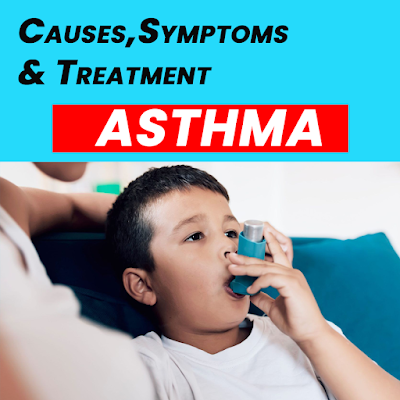Cardiac asthma, paroxysmal nocturnal dyspnea, is a medical condition characterised by sudden episodes of breathlessness, wheezing, and coughing that resemble traditional asthma symptoms. However, the underlying cause of cardiac asthma is not primarily related to lung issues but rather to congestive heart failure.
In congestive heart failure, the heart's ability to effectively pump blood is compromised, leading to buildup of fluid inside the lungs and other parts of the body. This fluid accumulation in the lungs can trigger episodes of cardiac asthma. These episodes often occur at night when an individual is lying down and may wake up abruptly, struggling for breath. The term "paroxysmal nocturnal dyspnea" reflects this phenomenon.
The symptoms of cardiac asthma can be distressing and frightening. During an episode, individuals may experience severe shortness of breath, a persistent cough that produces frothy or pink-tinged sputum, wheezing, and a feeling of tightness in the chest. These symptoms can be exacerbated by physical activity, eating a large meal, or exposure to cold air.
The mechanisms underlying cardiac asthma are closely tied to the compromised functioning of the heart. In congestive heart failure, the heart's pumping efficiency is reduced, leading to a backlog of blood in the vessels returning to the core. This congestion increases pressure in the lungs' blood vessels, causing fluid to leak into the air sacs. This fluid accumulation restricts oxygen and carbon dioxide exchange in the lungs, leading to breathlessness and other symptoms typical of cardiac asthma.
Diagnosing cardiac asthma involves a comprehensive assessment of a patient's medical history, physical examination, and diagnostic tests. Cardiac asthma doctors may use imaging techniques such as chest X-rays, echocardiograms, and electrocardiograms to evaluate the structure and function of the heart. Blood tests are also conducted to assess brain natriuretic peptide levels, a marker that rises with heart failure.
The cardiac asthma treatment primarily revolves around managing the underlying congestive heart failure. Medications such as diuretics are commonly prescribed to help reduce fluid buildup in the body. Lifestyle modifications like lowering salt intake, maintaining a healthy weight, and engaging in regular physical activity are essential to managing cardiac asthma.
In conclusion, cardiac asthma is a condition that mimics the symptoms of traditional asthma but is a result of congestive heart failure. Episodes of breathlessness, wheezing, and coughing are triggered by accumulation of fluid in the lungs due to compromised heart function. Proper diagnosis, effective management of heart failure, and lifestyle adjustments are key to alleviating symptoms and improving the quality of life for individuals with cardiac asthma. It's crucial for individuals experiencing such symptoms to visit an asthma doctor promptly for an accurate diagnosis and cardiac asthma treatment.
For More References Visit Us
https://bharathomeopathycure.blogspot.com/2023/08/breathing-without-limits-modern.html
https://www.minds.com/newsfeed/1541705534288171014?referrer=bharathomeopathy2810
https://www.storeboard.com/bharathomeopathy2
https://community.wongcw.com/posts/556356
https://bharat-homeopathy.jimdosite.com/

.png)


.png)


